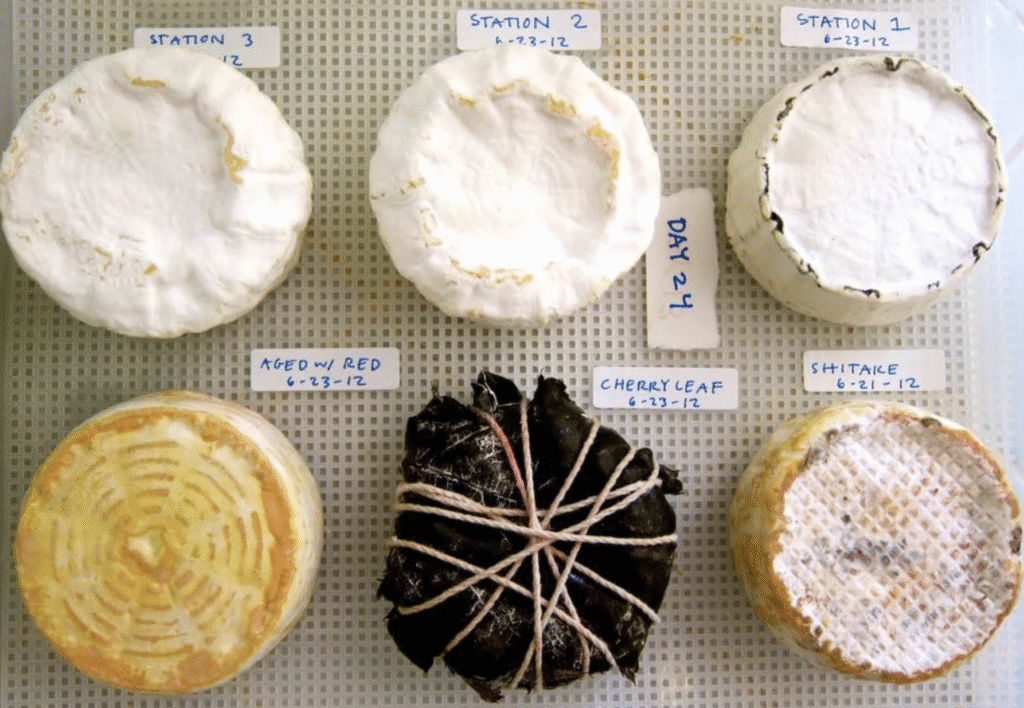Search Posts
Recent Posts
- Edible Gardens: Tips and tricks to planting the perfect garden – Mary Hunt May 25, 2025
- Ask Chef Walter: Cheese myths in the American table – Chef Walter Potenza May 25, 2025
- What To Do With Dead Squirrels. A short story by Michael Fine May 25, 2025
- Gimme’ Shelter: Sundae waiting at the Providence Animal Control Center May 25, 2025
- Rhode Island Weather for May 25, 2025 – Jack Donnelly May 25, 2025
Categories
Subscribe!
Thanks for subscribing! Please check your email for further instructions.

Ask Chef Walter: Cheese myths in the American table – Chef Walter Potenza
by Chef Walter Potenza, contributing writer
Image Attribution via Edward Howell
Unveiling the myths and exploring the health benefits and detriments of cheese
I imagine you love cheese as much as I do. In that case, you know that it has been integral to human culinary culture for centuries, offering various flavors, textures, and aromas. However, myths and misconceptions, like many other food products, often surround cheese.
In this article, I would like to share the common myths I have encountered in my cooking school surrounding cheese, delve into its potential health benefits, and discuss some detriments that should be considered.
Let’s start with some basic history:
Cheese was likely discovered around 8000 BCE when humans began domesticating animals like goats and sheep. It probably originated accidentally when milk, stored in containers made from animal stomachs, curdled due to natural enzymes like rennet. This process separated the milk into curds and whey, creating an early form of cheese. People realized this preserved milk longer, making it a valuable food source, especially in regions with limited refrigeration. Cheese production evolved as a way to store surplus milk, provide nutrition, and create diverse flavors through fermentation and aging, driven by both necessity and culinary curiosity.
Ok, let’s get into the various myths that surround this topic.
Myth 1: Cheese Is Unhealthy:
One common misconception is that cheese is inherently unhealthy due to its high fat content. While it is true that cheese can be high in saturated fat, not all fats are structurally equal. Cheese also provides essential nutrients such as calcium, protein, and vitamins A and B12. Moderation is essential, and consuming cheese in appropriate portions as part of a balanced diet can contribute to overall health.
Myth 2: Cheese Causes Weight Gain:
Another myth is that cheese is a leading culprit for weight gain. While excessive consumption of cheese (or any high-calorie food) can contribute to weight gain, moderate portions can be part of a healthy diet. Additionally, cheese’s protein and fat content can help promote satiety and reduce overeating.
Myth 3: Cheese Is Always Lactose Intolerant-Unfriendly:
While some individuals are lactose intolerant and should avoid certain types of cheese, many cheeses have low lactose content. Aging and fermentation processes break down lactose in cheese, making it more tolerable for those with lactose intolerance. Cheddar, Swiss, and Parmesan are generally well-tolerated by lactose-intolerant individuals.
Myth 4: All Cheese Is High in Cholesterol:
While it’s true that some types of cheese, such as full-fat varieties, can be higher in cholesterol, not all cheeses are created equal in this regard. Many low-fat or reduced-fat cheese options have lower cholesterol content. Additionally, dietary cholesterol from foods like cheese has less impact on blood cholesterol levels than saturated and trans fats.
Myth 5: Cheese leads to heart disease:
There is a common belief that eating cheese can lead to heart disease due to its saturated fat content. However, recent studies suggest that cheese and heart health are more complex. Certain types of cheese, especially fermented varieties like blue cheese, may have neutral or even positive effects on cardiovascular health when consumed moderately as part of a balanced diet.
Myth 6: Cheese Causes Mucus Production:
A widely held belief is that consuming cheese increases mucus production and congestion. However, scientific evidence does not support this claim. The sensation of increased mucus production after consuming cheese may be attributed to factors unrelated to cheese, such as individual sensitivities or allergies.
Myth 7: Cheese Is Not Suitable for Lactating Mothers:
A misconception is that lactating mothers should avoid consuming cheese to prevent infant allergies. However, research suggests that maternal consumption of common allergenic foods, including cheese, during breastfeeding does not increase the risk of allergies in most infants. Introducing a variety of foods, including cheese, to a baby’s diet after weaning may help develop their tolerance to different foods.
Myth 8: Cheese Is Bad for Dental Health:
While it’s true that cheese contains acids that can contribute to tooth enamel erosion, it also offers several dental health benefits. Cheese stimulates saliva production, which helps neutralize acids and remineralizer teeth. Additionally, the calcium and phosphorus in cheese promote tooth strength and repair. Practicing good oral hygiene can help mitigate any potential adverse effects.
Myth 9: Cheese Is Not Suitable for Individuals with Diabetes:
People with diabetes often assume that cheese is off-limits due to concerns about its fat content and impact on blood sugar levels. However, cheese can be included in a diabetes-friendly diet. Cheese is a food that contains protein and fat, which can help slow down the digestion of carbohydrates. This leads to a slower increase in blood glucose levels. If you have diabetes, choosing low-fat or reduced-fat cheese and consuming it in moderation can be a part of a healthy meal plan.
Now, let’s look into the Health Benefits of Cheese:
Cheese is more than just delicious. It’s also incredibly nutritious! It’s an excellent source of calcium, which is crucial for maintaining strong bones and teeth. Also, getting enough calcium and consuming vitamin D and other nutrients may decrease the risk of osteoporosis and fractures.
Cheese is an outstanding source of complete protein, owing to its composition of all essential amino acids required for maintaining muscle mass, repairing tissue damage, and promoting growth. Given its high nutritional value, cheese is essential to a balanced diet, particularly for individuals needing protein-rich foods, such as athletes and bodybuilders. Along with providing essential vitamins and minerals like vitamins A, B12, phosphorus, and zinc, cheese is a nutrient powerhouse, supporting healthy skin and brain function, boosting the immune system, and promoting overall well-being.

Image Attribution via Instructables
Detriments of Cheese:
- High Sodium Content: Some types of cheese, mainly processed and aged varieties, can be high in sodium. Exaggerated sodium intake may contribute to high blood pressure and cardiovascular health issues. Individuals with hypertension or other sodium-sensitive conditions should be mindful of their cheese consumption.
- Calorie Density: Cheese is energy-dense and contains many calories in a small volume. Overconsumption of calorie-dense foods, including cheese, can contribute to weight gain. Maintaining a healthy and balanced diet is imperative to avoid gaining weight.
- Potential Allergies and Sensitivities: While relatively rare, cheese can cause allergies or sensitivities in some individuals. Common allergens include casein and whey proteins. Those with known dairy allergies or sensitivities should avoid cheese or opt for alternative options.
Summary: It’s crucial to understand the truth about cheese and how it can impact our health, both positively and negatively. While cheese is an excellent source of essential nutrients like calcium, protein, and vitamins, it’s crucial to consume it in moderation and consider your unique dietary requirements. Incorporating cheese into a healthy diet requires carefully considering your health conditions, preferences, and dietary goals.
Additionally, it’s important to note that cheese can affect people differently based on their overall health, specific dietary needs, and personal sensitivities or allergies. For personalized guidance on optimal cheese consumption and overall nutritional well-being, I always recommend seeking advice from your healthcare professional or a registered dietitian.
Puglia Food + Wine Tour / October 6 – 13, 2025

___
Chef Walter is featured HERE every Sunday with his regular Ask Chef Walter column!

Meet Chef Walter! There is a constant, recognizable thread in the career of Walter Potenza to elevate the level of Italian culinary culture in the United States. Besides his unquestionable culinary talent and winning business perspective, Chef Walter has been a relentless educator with passion and knowledge who defeats stereotypes. His life, career, and values are a model, an example to follow by any chef of Italian gastronomy working outside Italy.
Chef Walter appears regularly on National and International Networks such as Food Network, ABC, CBS, NBC, RAI, FOX, and Publications such as NY. Times, Washington Post, Wall Street Journal, Food & Wine, Saveur, Gourmet, and several Italian media outlets. And now “RINewsToday”!
